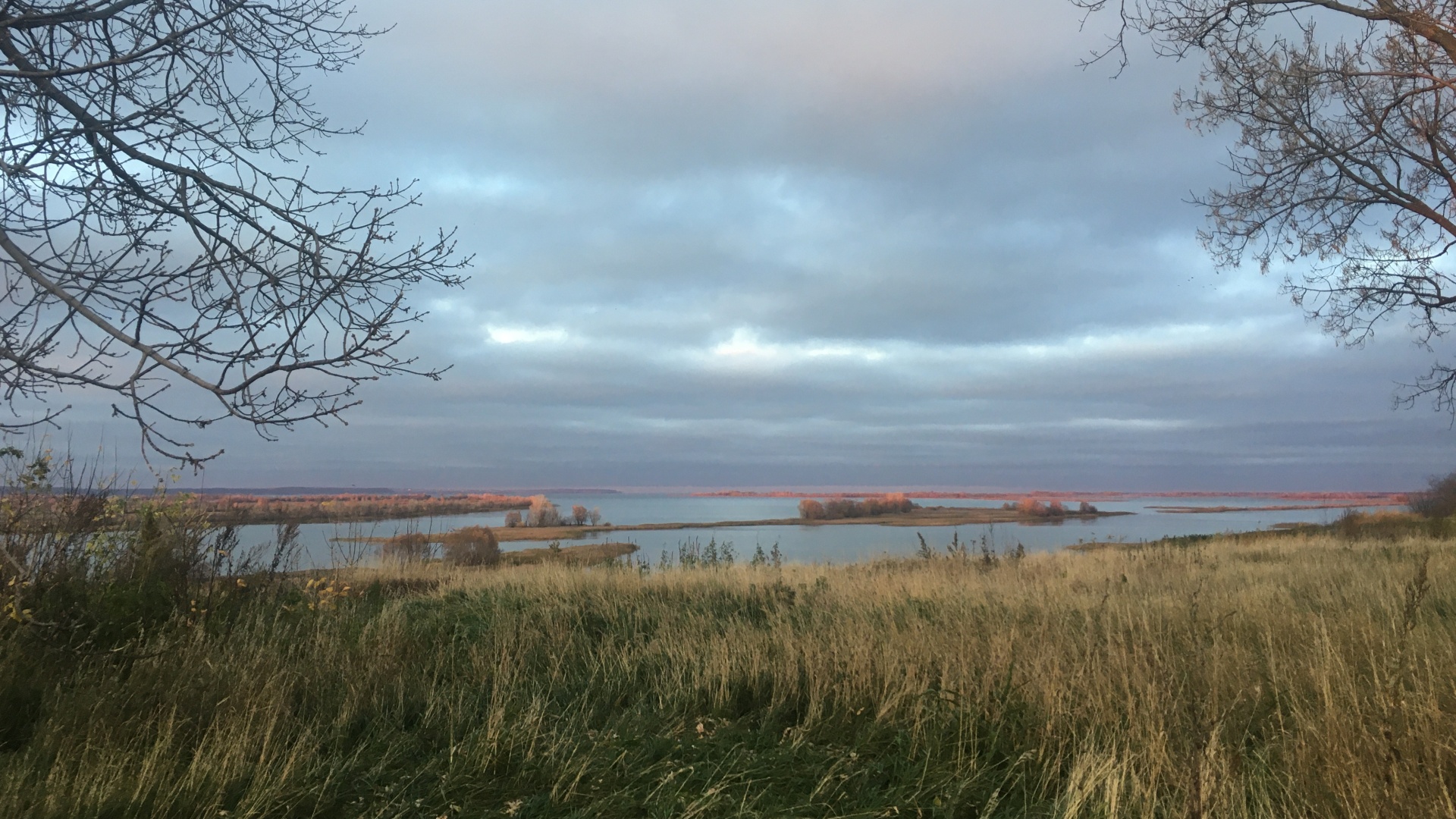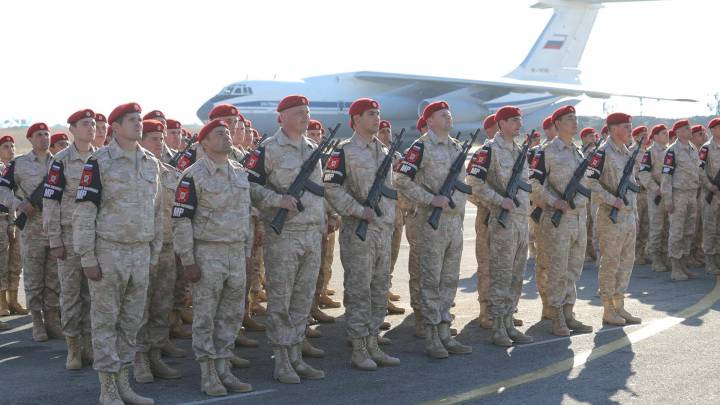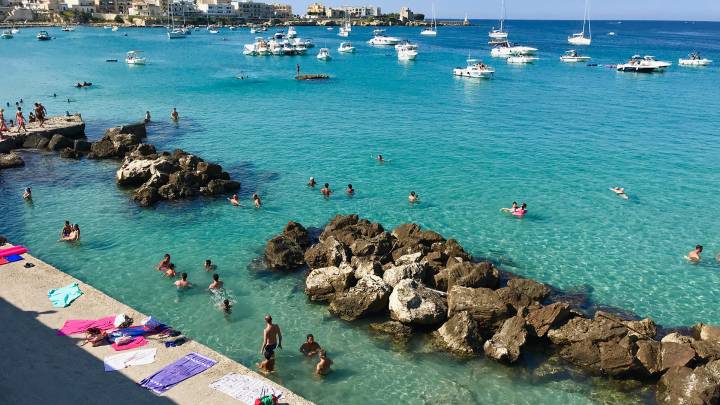Fearing supposed ethnic replacement and Islamisation, the German Right looks longingly towards Russia. What kind of ahistorical myopia is that?
A little while ago, I found myself sitting in the lobby of, the distinctly Russian, Hotel Volga. It was there that I chanced upon an article about Germany’s new ultranationalist intelligentsia. They did not strike me as a particularly intelligent bunch. A supposed adherent to this new sect, an aspiring historian under the pseudonym Michael, sounded off about the influx of foreigners into Germany and Islamisation. He feared that European elites wanted to replace the country’s population with Muslims. And that the German people were, unbeknownst to them, threated with cultural annihilation. He concluded by remarking that maybe he should move to Russia, as if to say that the good old Western world was still preserved there.
Upon reading that I managed to stifle a hoot of laughter for fear of drawing the disdain of the grumpy receptionist.
The self-professed intellectuals of the German right cling on to the belief that a pastoral idyll of our continent endures on the eastern edges of Europe in its pure, unfettered form. Russia, accordingly, is the epitome of the bucolic old world. It has remained immune to the ravages of globalisation which have elsewhere destroyed all vestiges of cultural authenticity and left a single universal civilisation in its wake. Such cultural pessimism can also be found in the sentimental glorification of Yugoslavia by the Nobel Prize-winning Austrian Peter Handke.
Only that this glorification of the East as a culturally homogenous reflection of a long-lost Western Europe is founded upon a fundamental misunderstanding. Back to Kazan. One of Russia’s finest picture-postcard cities. Proudly situated on the banks of the river Volga, albeit dammed by human hands. The winters sometimes last as long as five months. Beyond the ancient city gates lie dreamy suburbs full of warped, weather-beaten houses. And above the old city perches the magnificent hill-top citadel, the Kazan Kremlin, which bears the title of an UNESCO World Heritage Site, the international gold-standard of cultural excellence. Within the Kremlin complex, alongside the Orthodox Annunciation Cathedral and the former Governor’s Palace, the four minarets of the Kul Sharif Mosque protrude high into the sky.
Kazan is the capital of the autonomous Republic of Tatarstan within the Russian Federation. While, at the same time, Tatarstan lies at the northern-most reaches of the Muslim world.
The Volga Tatars, who comprise the majority of the republic’s population, are a Muslim Turkic people and are closely related to modern-day Turks.
As the president of the Republic of Tatarstan, Rustam Minnikhanov, although he has a great deal of room for manoeuvre, hardly anyone dreams of dissociating themselves from Russia. Russia and Tatarstan are too closely linked.
Unlike Germany, Russia has never thought of itself as an ethnically homogeneous nation-state, but rather as a monarchy, an empire and a great power. The poet Alexander Pushkin had an Ethiopian great-grandfather, Joseph Stalin hailed from Georgia, and the magnificent ballet dancer Rudolf Nureyev came from a Muslim-Tartar family.
In the Volga city of Bolghar, Turks, Slavs and Vikings have mingled with Finnic fur traders and envoys from Samarkand and Armenia since the early Middle Ages
Exchange throughout this enormous Eurasian land bridge with the supposed Other, especially with Islam, has defined Russia since its inception as a state.
In the Volga city of Bolghar, some 200km south of Kazan, Turks, Slavs and Varangians (Vikings) have mingled with Finnic fur traders and envoys from Samarkand and Armenia since the early Middle Ages. Loans from the Arab world transformed the city into a trading centre. In its heyday Bolgar was one of Europe’s biggest cities.
Even now the remains of the mausoleums and mosques can be found amid the heightened romance of the landscape as it transitions between the Russian steppe and the endless taiga.
Not to mention that the ancient Russian king, Vladimir the Great, would have according to legend converted to Islam, if he had not been so found of wine. As it was, he was baptised in 988 and so Russia became Christian.
Despite all the talk of the ‘Tatar-Mongol yoke’, it was the favour of the Tatar Kazan Khanate that allowed Moscow, the Khanate’s medieval vassal, to defeat the city’s great rival, Novgorod. From this point on Moscow achieved supremacy over its fellow Russo-Slavic principalities. And it was Ivan the Terrible’s conquest of Kazan in 1552 that sparked Russian expansion toward Siberia and Central Asia, marking the rise of Russia to the rank of a great power.
Unlike the fall of Granada to Christians, 70 years prior, Ivan did not banish the Muslims from Kazan. Those who adhered to Islam were no longer allowed to live inside the city’s fortification and their mosques were razed to the ground. Yet the population of Tatarstan remained predominantly Muslim under Russian rule.
During the reign of Catherine the Great, the first mosques reappeared in the suburbs of Kazan, opened with approval of the Tsarina herself
During the reign of Catherine the Great, the first mosques reappeared in the suburbs of Kazan, opened with approval of the Tsarina herself. The Märcani Mosque, which remains standing today having been built in 1770, would at first sight seem as though it were a baroque palazzo were it not for the minaret.
As Russian expanded eastwards towards Central Asia and into the southern Caucasus, the role of Islam in Russia continued to grow. One may think that questions surrounding the compatibility of Islam and democracy, or the observation of Ramadan in the far north, or calls for a feminist interpretation of Islam were only asked at the end of the 20th Century. However, Islamic scholars in Tsarist Russia, such as Ismail Gasprinski and the reformers of the Jadid movement, grappled with these questions more than a hundred years ago (their remedy: Turkification, Islamisation, Europeanisation). An intellectual treasure trove which deserved much more attention in Western Europe.
The Tatars also played an important role in the Ottoman Siege of Vienna in 1683. Right-wing ideologues regard the victory of the Polish army under John III Sobieski against the Ottomans at the Battle of Vienna as an expression of a clash of civilisations between Christendom and the Islamic World. For example, the Norwegian right-wing terrorist, Anders Breivik, referenced the battle in his confusing manifesto ‘2083 – a European Declaration of Independence’. Only that the Muslim Lipka Tatars, the Polish-Lithuanian cousins of the Volga Tatars, fought then on the side of Polish army. The Polish Tatar colonel, Samuel Murza Krzeczowski, even saved Sobieski’s life during the battle.
On the other side, Transylvanians, Moldavians, Vlachs, and especially, janissaries of Serbian, Bulgarian and Greek origin fought alongside the Ottoman sultan. But that is another story.
Elsewhere, it now seems in vogue for some high-brow feature writers to draw a new political dividing line to highlight a contrast between two groups. On the one hand are globalised elites, who fetishize money, and on the other traditionalists, who prostrate themselves before the altar of cultural authenticity. This increased preoccupation over what separated the two was reflected not for the last time in the decision to jointly award the Nobel Prize in Literature to Handke and Polish writer, Olga Tokarczuk. Both of whom approach the complexities of the topic in very different ways. Either local and yet cosmopolitan like Tokarczuk or by falling into poetic dream worlds like Handke.
Russia may be a loser of globalisation, Tatarstan is a winner
Although I am unwilling to do Handke a disservice, he is in his sentimental romanticism deeply rooted in the idealised history of the Austro-Hungarian monarchy, like Russia a multi-ethnic empire. And therefore, he is not necessarily a bedfellow those of an ahistorical and nationalist persuasion like the “Michael” we met at the beginning.
However, taking a look from Tatarstan at European debates shows that the often-contrived contrast between globalised commercial culture and locally rooted authentic culture is somewhat short-sighted.
After Moscow, the Republic of Tatarstan is considered the most prosperous part of the Russian Federation. The Republic is a rich and thoroughly globalised region. Mineral resources and an international industry are constantly replenishing the government’s coffers with roubles. And yet Tatarstan is especially culturally independent. Since the fall of the Soviet Union more than 1,000 mosques throughout the Republic have been opened. The Tatar-speaking music scene is booming, just like poetry and language courses. The recently renovated building of the World Congress of the Tatars comes across as an eclectic mix of a trendy start-up hub and a shiny luxury clinic. Russia may be a loser of globalisation, Tatarstan is a winner.
The view from Kazan makes it clear. The crux of the problem of Germany’s self-proclaimed new right-wing intelligentsia is thus that they lack exactly what they love to accuse their political opponents of, namely, a historical consciousness.




